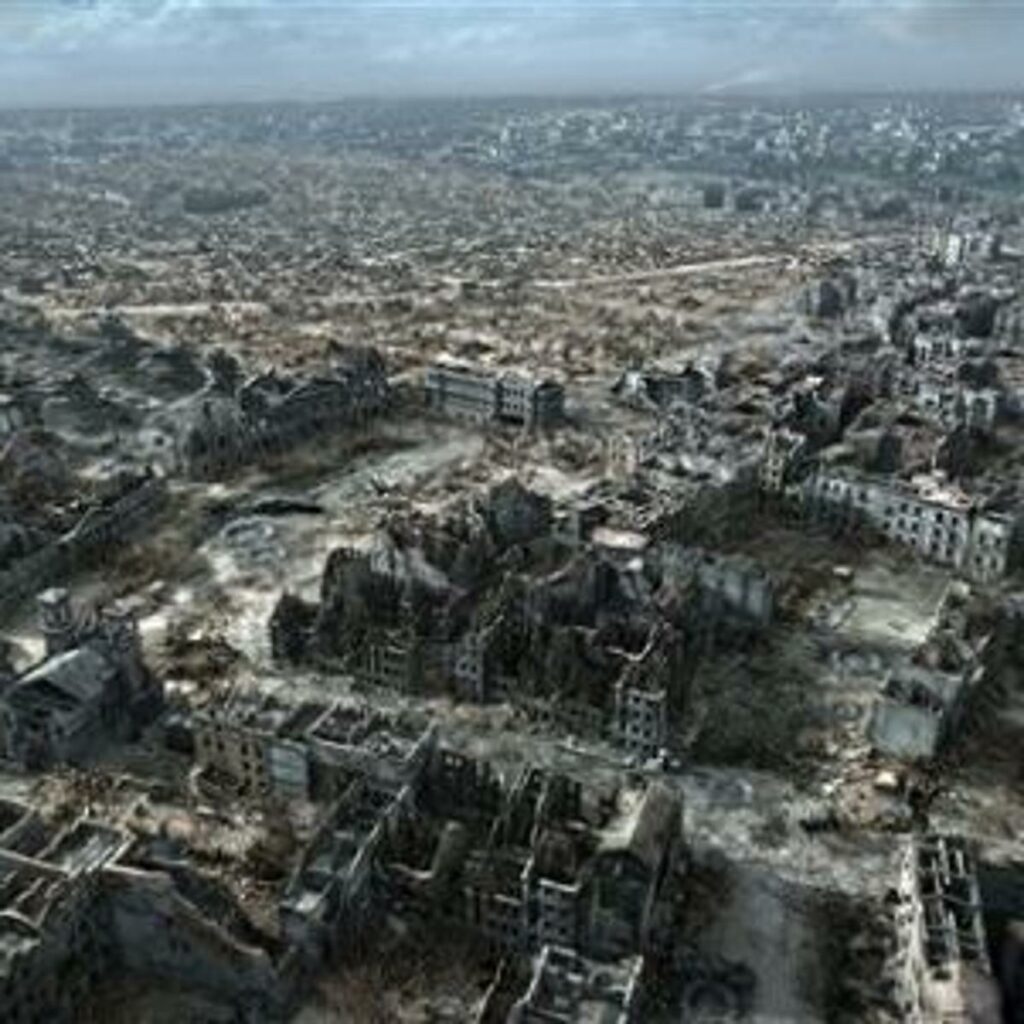They were the largest group of the people participating in the Warsaw Uprising. And the only one not involved in the decision to rise. Before the war, Warsaw had a population of 1,300,000, and the city was the seventh largest of Europe. In March 1945, after the Germans evacuated, only 310,000 were left. From the vibrant city the capital of Poland was degraded to a corpse.
At the W-hour, the moment of starting ”Operation Burza’, most of the people seemed euphoric. After several days’ exuberance was replaced by anger, and later by an acceptance of a terrible fate. Following the Warsaw surrender, after they laid all their weapons, many of the fighters were sent to the German POW camps, and, later, after the Russians came, to Gulags. Defenseless people who stayed in Warsaw were left at the mercy of invaders.
Then the Germans stepped up the annihilation of the city.
Before the war, Warsaw was the second largest, after New York, home to the Jewish population. With inhuman, sadistic persistence, most of them were starved to death, killed on the spot, or sent to concentration camps. The Ghetto was razed. German Stuka dive bombers, with sirens attached to their wings, operated with impunity over the martyred city. Their terrifying, blood-chilling sounds inevitably foretold huge explosions of 1,100-pound bombs. The air attacks were coordinated with unprecedented artillery bombardments. Rocket salvo of 6 missiles used, 4 with explosives and 2 with napalm. The heavy artillery, not used on the Eastern front in Stalingrad and Sevastopol anymore, was withdrawn to Warsaw. The remaining population of the city was hurriedly evacuated to the suburbs.
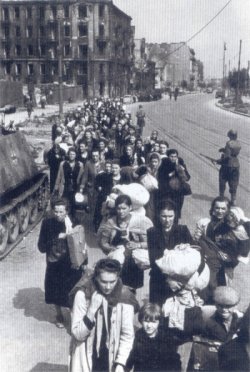
My parents were among the 650,000 of people herded in Pruszków. I was 8 months old at that time. For the next 3 months, the Germans stole whatever valuable was still left in the city. The rest was burned.
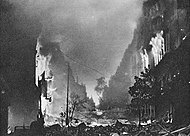
Then they sent a commando group of the sadistic criminals, Dirlewanger SS-Sturmbrigade, to butcher whoever was left. Mass murder, looting, arson, torture and rape were their way to wipe out the population of Warsaw. The killings of men, pregnant women, children were not the problem. Disposing of their bodies was. The stench of the funeral pyres spread over the city. Later, the bodies were just dumped in mass graves, which made the future identification for the proper funerals impossible. The cemeteries filled up quickly. The new ones were created everywhere where there was a clear strip of soil.
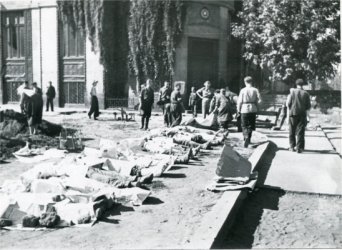
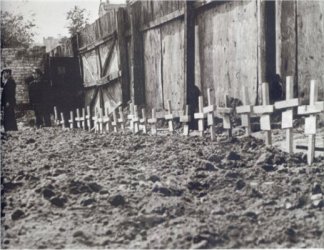
Most of the graves were unmarked. Sappers demolished all standing buildings and burned whatever was left with flamethrowers.
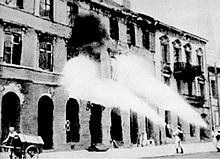
The Royal Castle was reduced to rubble. Most museums and rich libraries, after looting, were leveled. Antique palaces and centuries old residences were dynamited.
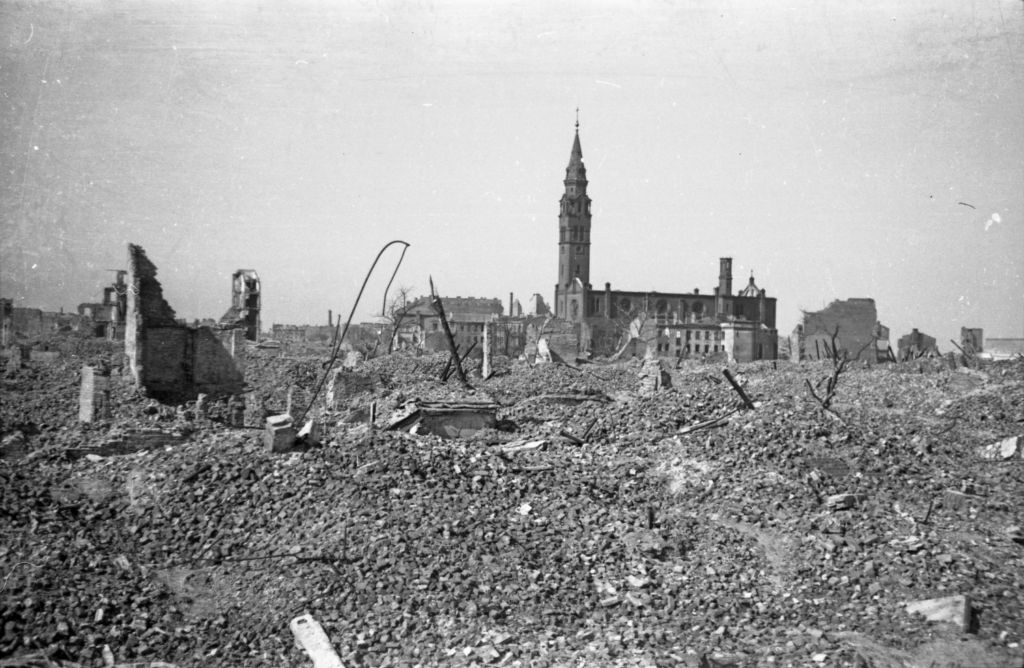
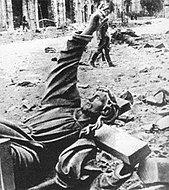
All bridges and train stations were blown up. My parents’ apartment, where I was born just a few months ago, was pulverized. My sophisticated crib, which had cleverly designed sides to be dropped and converted to a bed, a crib which should have lasted for years, was blown out in the next bombardment after we were run out of the city. My crib was just 5 months old. So was I.
So, the largest group of people, the group which suffered and sacrificed the most, were the residents of Warsaw. And they were never asked about their thoughts about starting the Uprising.
In 1944, right after the Uprising fell, Antoni Słonimski wrote a poem ‘The grave of the unknown citizen of Warsaw’. The English translation is beyond my reach, so I provide the original. My Polish-speaking readers will understand.
Antyczni, nadzy i ogromni,
Zastygli w krzyk kamiennych warg,
Których na łukach tryumfalnych ark
Ustawią kiedyś w rząd potomni,
Bohaterowie wielkich dni,
Na tle chorągwi i barykad,
Antyczni, nadzy i ogromni,
O których co dzień komunikat
Podawał światu rapsod nowy,
O was historia nie zapomni
I narodowy rzuci pieśniarz
Ziarno męczeńskiej waszej krwi
I posiew cierpień
I uniesień
Na nowy Sierpień,
Nowy Wrzesień,
Na nowych dni sześćdziesiąt trzy.
O was historia nie zapomni,
Lecz któż na grobach będzie siadał
Tych, którzy trwożni i bezdomni
Padali mrowiem niezliczonym,
Któż się o milion ten upomni?
I jaki pieśniarz będzie składał
Słowa gorące i szalone
O tych, co w cieniu waszej glorii,
Bez narkotyku wielkich czynów
Konali w męce dla wawrzynów,
Co wasze skronie ozdobiły,
Rzucając pomiot ciał swych zgniłych
W dymiący, krwawy gnój historii?
Dla was pieśń moja i łzy moje,
Zwyczajni, prości, nieogromni.
Kiedy na zgliszcza wróci życie,
Na narodowy święty grób,
Gdy kości będą zbierać z szańca,
Aby z nich dźwignąć pomnik sławy,
Niech na cmentarnej będzie płycie
Ten napis prosty, napis krwawy:
Tu leży Trup
Nieznanego Mieszkańca
Warszawy
“Mogiła Nieznanego Mieszkańca Warszawy” – Antoni Słonimski
Winston Churchill got the glory as the winner of WW ll.
Franklin Roosevelt got reelected to the unprecedented third term.
Stalin got his wish. He used his people as ‘cannon fodder’. In the conversation with Allies, he bragged, ‘We have plenty of people’. Mother Russia lost 27,000,000 of their citizens. In exchange for Western arms supplies and tying up the Germans in the East, he got full control over Eastern Europe.
Most of the Polish Government in exile lived to their ripe age in the West.
The commanders of the Home Army, directly responsible for the orders to start the war, were generally well treated in captivity.
35,000 fighters surviving insurgents, after 70 years, were given a chance to record their memories and opinions in the archive in Warsaw Uprising in Warsaw.
The people of Warsaw, lucky enough to survive the slaughter, had to start from zero––ground zero. Brick by brick, memory after memory, hoping ‘never again’…
We’ve rebuilt Warsaw.
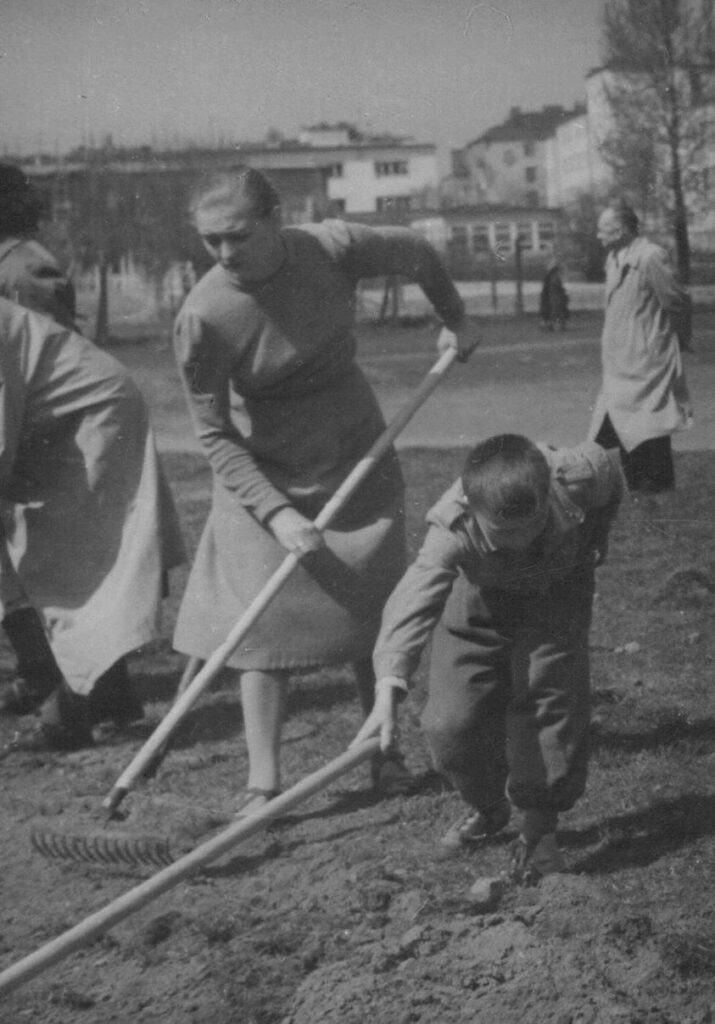
Nothing like that was ever done before. Not in Carthage, not in Troy. Never.
[embedyt] https://www.youtube.com/watch?v=RzLDXu0Mg2M[/embedyt]
